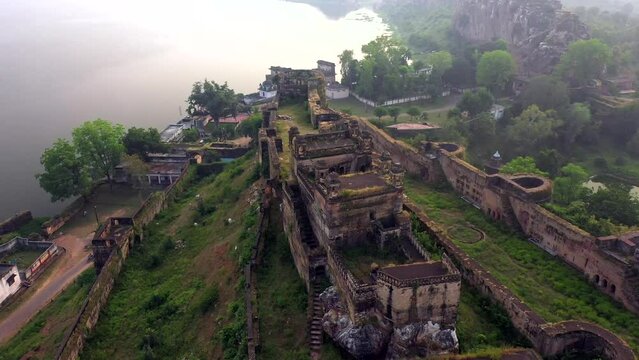Places to Visit in Gwalior
Steeped in royal grandeur and ancient history, Gwalior – the city of Scindias – offers a majestic blend of fortresses, palaces, and spiritual sites for every traveler. Discover iconic forts, stunning palaces, and unique cultural landmarks among the top places to visit in Gwalior.
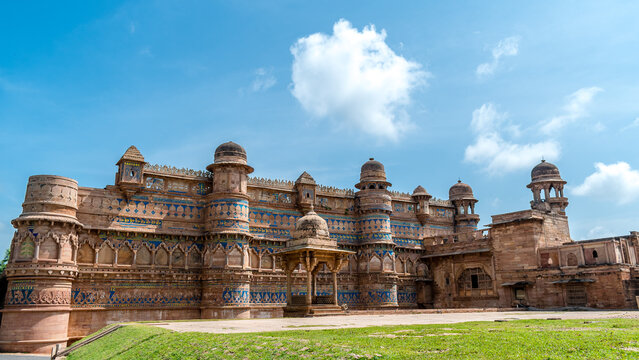
Gwalior Fort
An iconic symbol of the city, this majestic fort crowns a solitary hill. Its imposing structure encompasses palaces, temples, and water tanks built over centuries. The fort has witnessed the rule of several dynasties and is often called the ‘Gibraltar of India’ for its invincible nature.
The intricate carvings and historic monuments within its walls tell a story of grandeur and resilience. It is a must-visit for anyone interested in India’s rich architectural heritage.
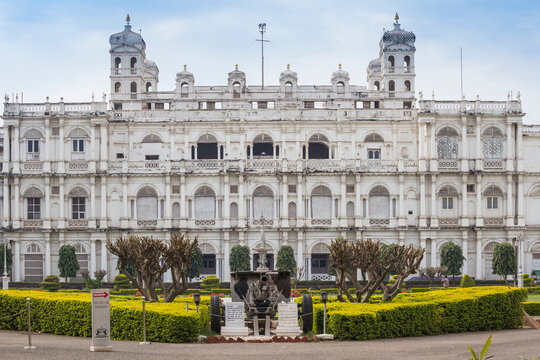
Jai Vilas Palace
A stunning Scindia palace showcasing opulent European-style architecture.
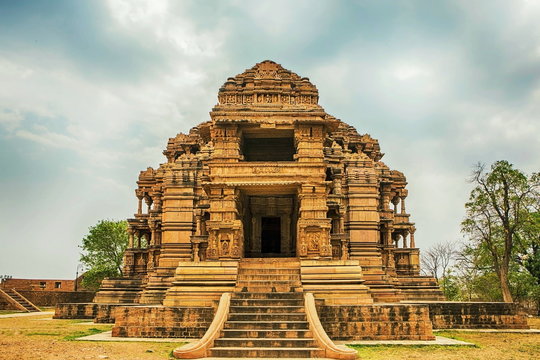
Sas Bahu Ka Mandir
Exquisitely carved 9th-century temples dedicated to Lord Vishnu.
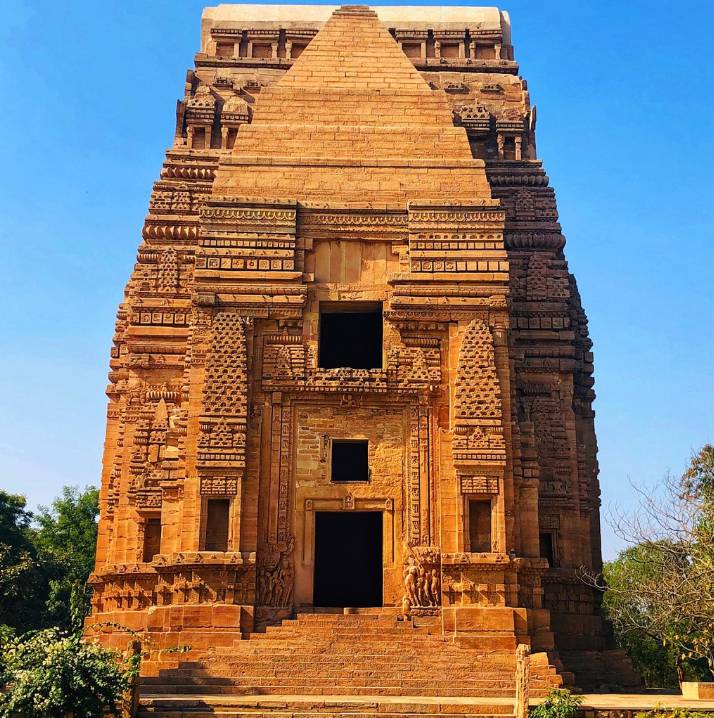
Teli Ka Mandir
A unique and towering temple blending North and South Indian styles.
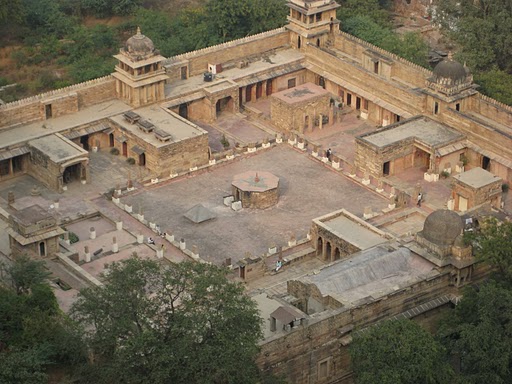
Gujari Mahal
A former palace now housing an archaeological museum with rare artifacts.

Man Mandir Palace
Located within the Gwalior Fort, this is the most exquisite palace known for its stunning facade. The exterior is adorned with detailed blue, yellow, and green tile work depicting animals and flowers. Built by Raja Man Singh Tomar, its interior features underground chambers and intricate stone lattice work.
The palace showcases a brilliant example of early Hindu architecture and craftsmanship. It is a captivating glimpse into the opulent lives of its royal inhabitants.
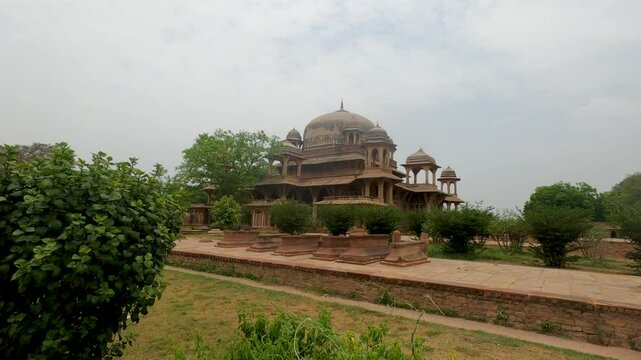
Tomb of Tansen
The serene resting place of the legendary Mughal-era musician.
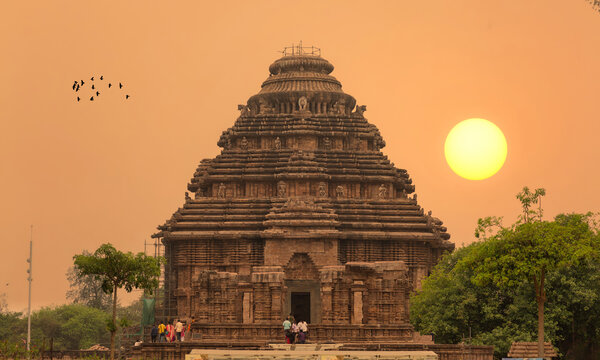
Sun Temple
A modern and beautiful marble temple dedicated to the Sun God.
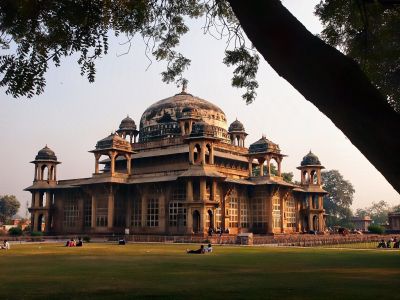
Scindia Museum
Located inside Jai Vilas Palace, it displays the royal family’s collection.
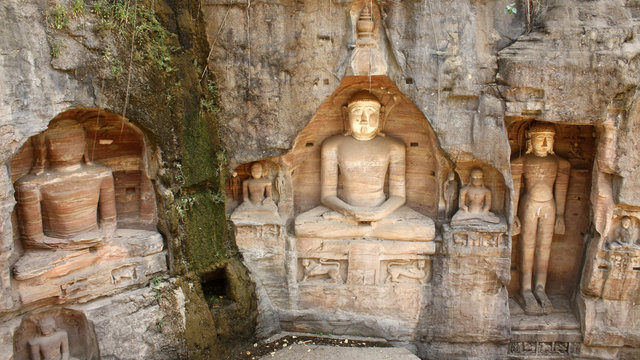
Gopachal Parvat
A hill featuring a stunning collection of ancient Jain rock-cut sculptures.
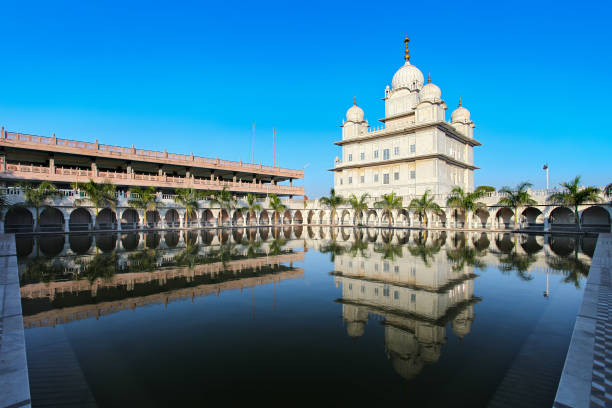
Gurudwara Data Bandi Chhod
This significant Sikh shrine is dedicated to the sixth Sikh Guru, Guru Hargobind Sahib Ji. Its name, “Data Bandi Chhod,” translates to “The Liberator of the Imprisoned,” commemorating the Guru’s release from Gwalior Fort.
The serene atmosphere of the Gurudwara offers a place for prayer and reflection. It stands as a powerful symbol of religious freedom and justice. The structure itself is beautiful and spiritually uplifting for all visitors.
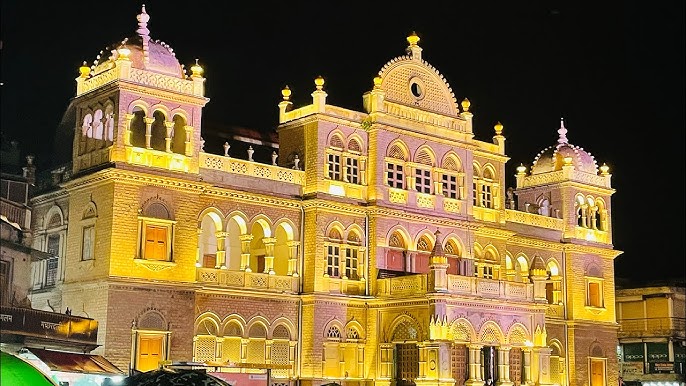
Maharaj Bada
This is the vibrant and historic heart of Gwalior’s old city, known for its bustling market atmosphere. The area is famous for its traditional shops selling everything from handicrafts and textiles to local street food. The architecture here is a blend of old havelis and colonial-era buildings, creating a unique charm.
It is the perfect place to experience the local culture, flavors, and shopping delights. The energy and colors of Maharaj Bada provide an authentic taste of the city.

Suraj Kund
An ancient water tank located at the foot of the Gwalior Fort, Suraj Kund is steeped in legend and history. It is believed that the water from this natural spring has medicinal properties, especially for curing skin ailments.
The name translates to ‘Sun Pool,’ and it is considered a sacred site by locals. The tranquil surroundings offer a peaceful retreat from the city’s hustle. It is a simple yet historically significant spot to visit.
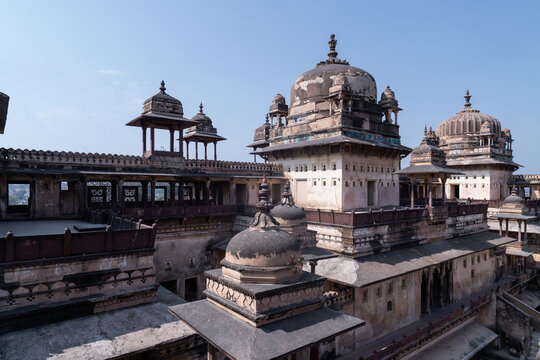
Orchha
Nestled on the banks of the Betwa River, Orchha is a historic town frozen in time. It is renowned for its magnificent palaces, grand temples, and intricate chhatris (cenotaphs) built by its Bundela rulers.
The majestic Orchha Fort complex and the serene Ram Raja Temple are its key highlights. The town’s medieval charm and architectural splendor create a mesmerizing atmosphere. It feels like walking through the pages of a history book.
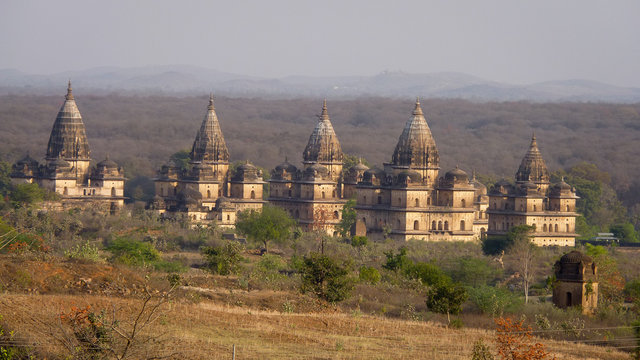
Jhansiuli
A city famed for its strong fort and connection to Rani Lakshmibai’s bravery.
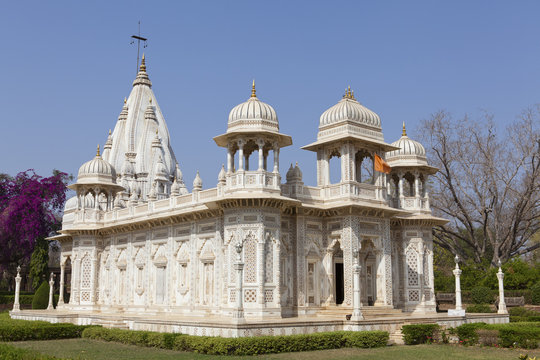
Shivpuri
Known for its ancient forests, royal hunting lodges, and beautiful chhatris.
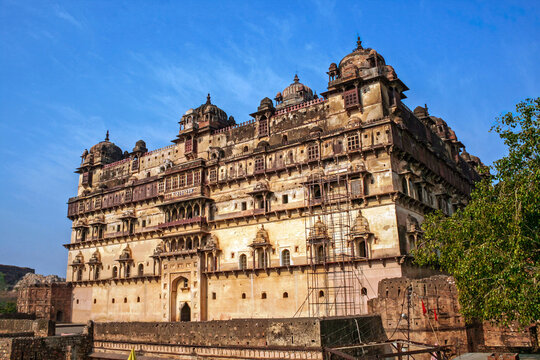
Datia
Home to the spectacular seven-story Bir Singh Dev Palace (Satkhanda Palace).
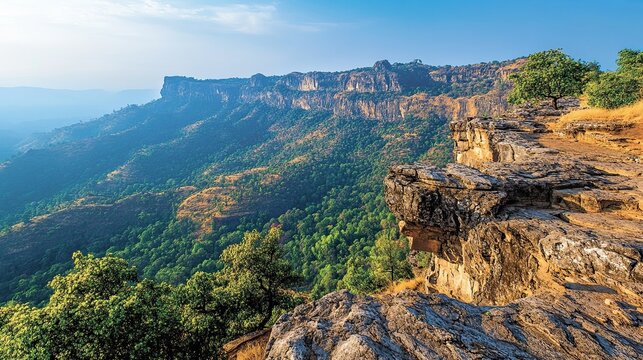
Pachmarhi
A picturesque hill station nestled in the Satpura Range with lush greenery.
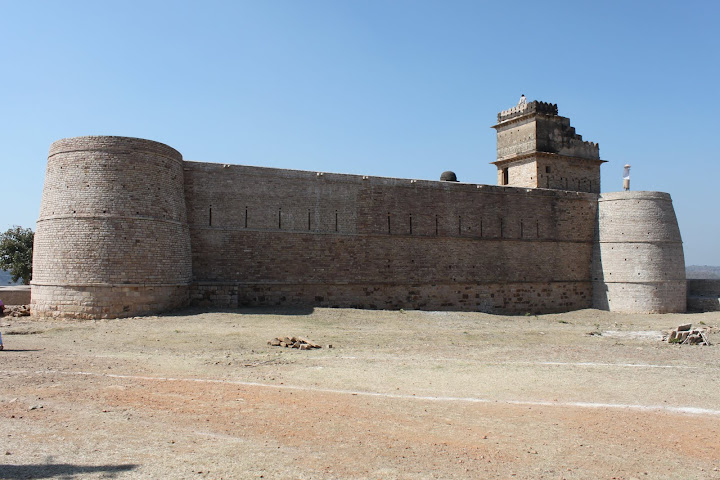
Chanderi
Famous worldwide for its exquisite hand-woven silk sarees, Chanderi is a town with a profound historical legacy. It is dotted with ancient monuments, including a formidable fort, majestic mosques, and historic baolis (stepwells).
The town’s strategic location on trade routes has left it with a rich tapestry of cultural influences. Exploring its ruins and witnessing the weaving process are key experiences. Chanderi beautifully blends craft, culture, and history.
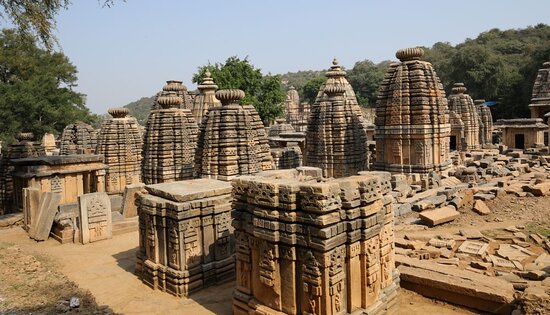
Bateshwar
A complex of over 100 ancient Hindu temples dedicated to Lord Shiva.
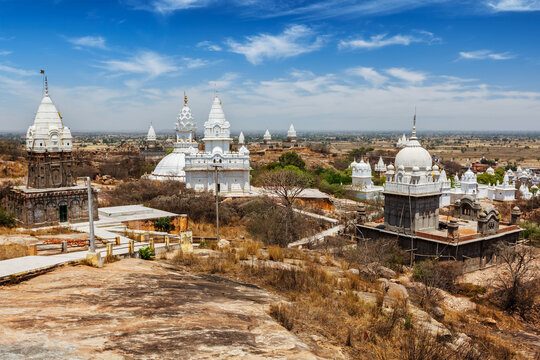
Sonagiri
A prominent Jain pilgrimage site with hundreds of white marble temples.
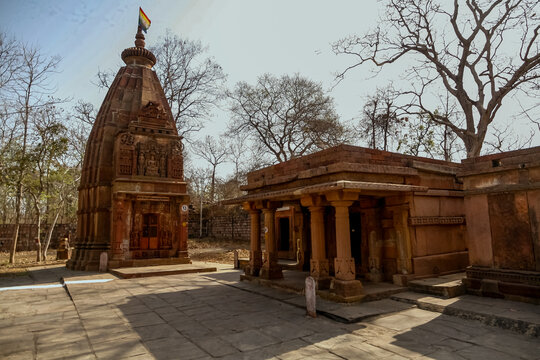
Deogarh
An archaeological site known for its Gupta period temples and Jain complex.

National Chambal Sanctuary
This wildlife sanctuary protects the critically endangered gharial and the red-crowned roofed turtle. It is also one of the few places where you can spot the rare Gangetic dolphin in its natural habitat.
Visitors can take a boat safari on the Chambal River to observe these creatures and various migratory birds. The rugged ravine landscape provides a stunning backdrop for the safari. It is a pristine and vital ecosystem for conservation.
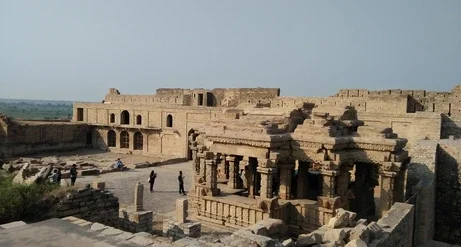
Padavali
Features well-preserved ancient temples with intricate and erotic sculptures.
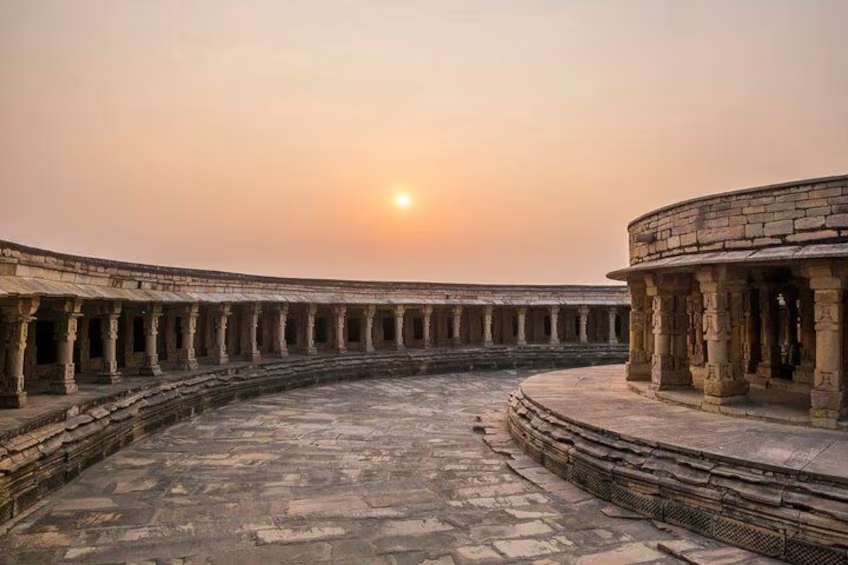
Mitawali
A unique circular, cyclopean-style ancient temple dedicated to Lord Shiva.
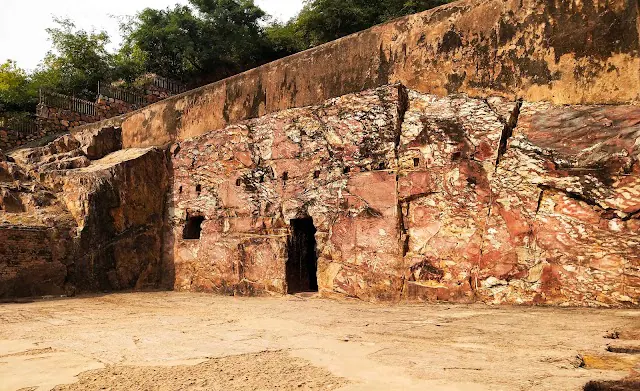
Bhander
Known for the historic and imposing Khooni Bhanderi Fort and its architecture.
Gwalior Fort
- Gwalior Cultural Guide
- Places to visit in Gwalior
- Places to visit nearby Gwalior
- Central India’s most popular destination
- India’s archaeological marvels
Recommended articles
A History Buff’s Guide to Gwalior Fort
Beyond the Fort: Hidden Gems of Gwalior
Gwalior for Foodies: A Culinary Journey
The Royal Trail: Palaces and Museums of Gwalior

